Вы здесь
Kalen Zhetimishbaev Historical and Genealogical Museum.
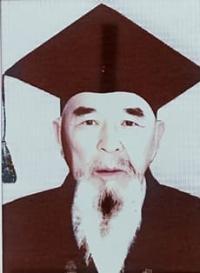
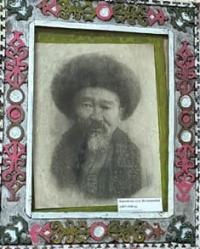
Historical museums in Issyk-Kul region.
"The uniqueness of the ethnogenesis of the Kyrgyz people lies in the fact that their formation took place in two areas: along the banks of the Yenisei River and in the Tien Shan. The Yenisei branch of the Kyrgyz is the more ancient. The development of the Kyrgyz tribes along the Yenisei River led them, during the era of the emergence of class society, to the creation of their own state and the development of distinctive cultural features, in particular, the runic Kyrgyz script in the so-called literary language of the Orkhon Turks. The political and economic isolation of the Yenisei Kyrgyz and their independent historical development contributed to the expansion of the economic base of their economy and the emergence of distinctive features in their everyday life. A significant role in this was played by the emergence of agriculture as a subsidiary sector, as well as the establishment of headquarters towns and developed crafts, especially metallurgy."
A. Bernshtam. "On the Origin of the Kyrgyz People." 1955.
Tour of Kalen Zhetimishbaev Historical and Genealogical Museum.
Kalen Jetimishbaev Historical and Genealogical Museum is located at an altitude of 1,789 meters above sea level, 14.5 kilometers from southern shore of Lake Issyk-Kul, in southeastern part of village of Orgochor, 82 meters north of monument to Tilekmat and Sart in Jetyoguz district of Issyk-Kul region.
The Kalen Jetimishbaev Historical and Genealogical Museum, located in the village of Orgochor, occupies a special place among the cultural and scientific centers of Kyrgyzstan. Its establishment was an important step in preserving national memory and researching the rich historical heritage of the Kyrgyz people.
The idea for the museum belongs to war and labor veteran Kalen Zhetimishbaev. It was on his initiative that a museum called "History and Local History" was opened in Orgochor in 1993. This small cultural center was initially created as a place to preserve artifacts, documents, and memories related to the history of his native region and its people.
The significance of Kalen Zhetimishbaev's work was officially recognized: in 1999, by decision of the District Council of People's Deputies, the museum was named in his honor. This was not only a sign of respect for the veteran's achievements but also a confirmation of the importance of preserving historical memory at the regional level.
A new stage in the museum's development began in 2023 - 2024, when, with the support of the Presidential Property Management Department of the Kyrgyz Republic, the institution was fully registered. As a result, the museum received the official status of "Historical and Genealogical Museum named after Kalen Zhetimishbaev," opening up new opportunities for scientific and educational activities.
The museum's particular value lies in its archive, dedicated to the genealogy of the Kyrgyz people. Today, it houses over a thousand unique manuscripts by Kyrgyz genealogists. These documents detail the distribution of the 40 tribes that made up the Kyrgyz ethnic community.
Along with the manuscripts, the museum library houses over 800 books and over 100 newspaper articles devoted to the history and culture of Kyrgyz tribes. Such a rich collection makes the museum not only a cultural institution but also an important scientific resource for researchers.
Collaboration with academic and government institutions from various countries has significantly contributed to the archive's development. The museum has received copies of valuable materials from archives in St. Petersburg, Omsk, Almaty, and Tashkent.
These documents allow us to trace the connections between Kyrgyz history and processes occurring in Central Asia and adjacent regions. In addition to written sources, the museum's collection includes numerous artifacts reflecting the history of the Kyrgyz people since ancient times.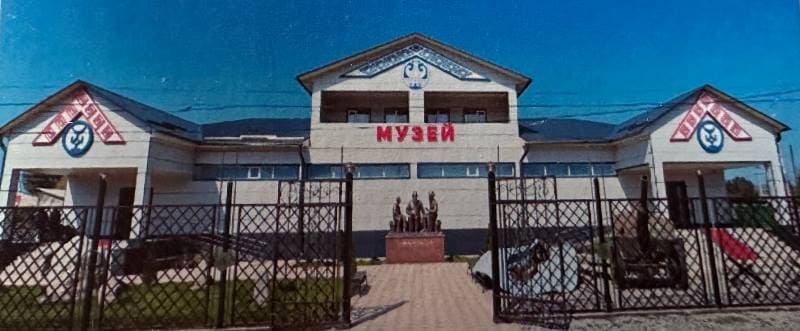
These include household items, jewelry, tools, and rare ethnographic exhibits. These artifacts not only bring the past to life but also help vividly demonstrate the continuity of traditions, worldview, and spiritual values of the Kyrgyz people. Today, the historical and genealogical museum in Orgochor serves several important functions.
It serves as a repository of national memory, an educational platform for schoolchildren and students, and a center for scientific research in the fields of history and ethnology. Thanks to the efforts of Kalen Zhetimishbaev and his followers, the museum has become a symbol of respect for the past and a desire to preserve knowledge about the roots of the Kyrgyz people for future generations.
Its archives and collections continue to attract the attention of researchers and travelers, making Orgochor a significant point on the cultural map of Kyrgyzstan.
Museum address: 1 Toktogul Street, Orgochor Village, Jety-Oguz District, Issyk-Kul Region, 722016, Kyrgyz Republic.
Hours: 9:00 AM to 4:00 PM. Closed on Mondays.
Phones: +996 (553) 663 610 (WhatsApp), +996 (507) 700 035. Email: muzei70baev@mail.ru
Geographical coordinates of Kalen Zhetimishbaev Historical and Genealogical Museum: N42°22'06 E78°02'54
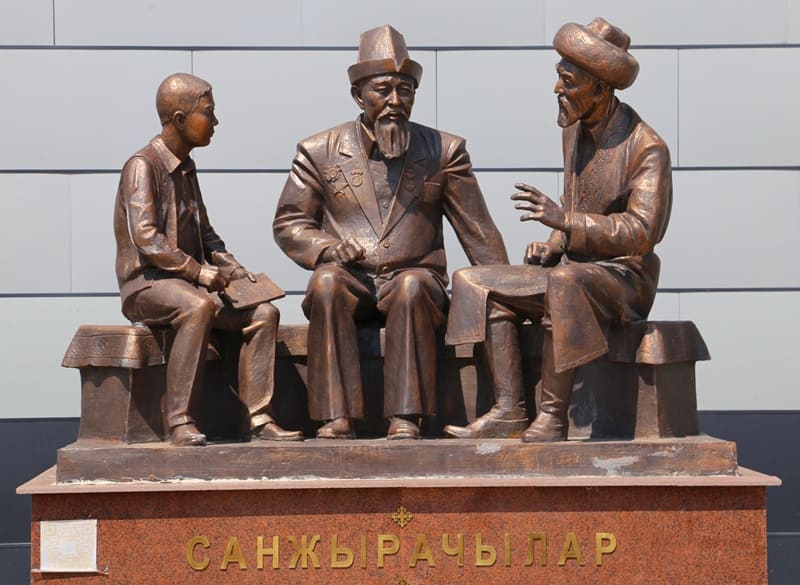
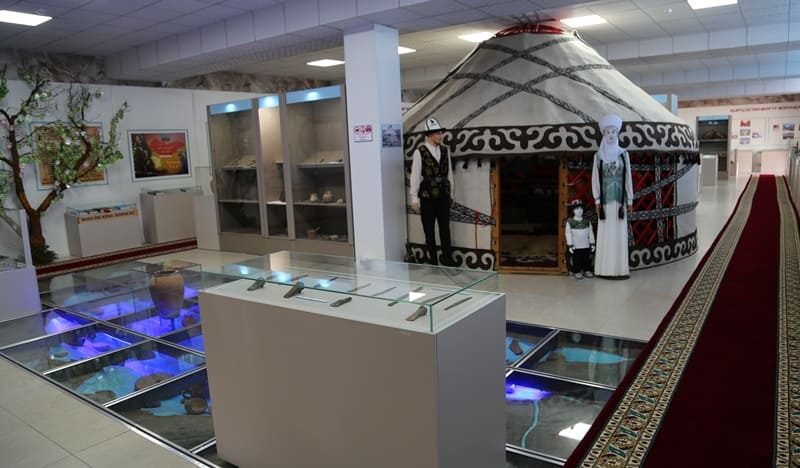

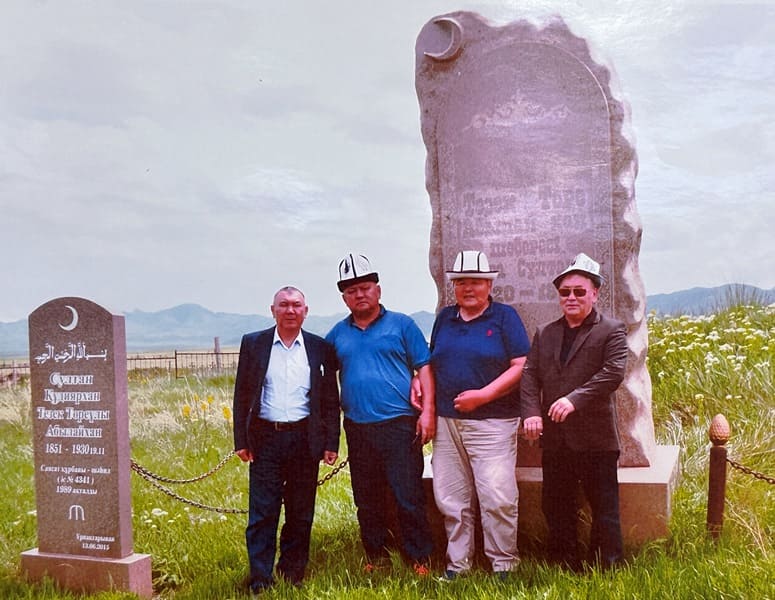

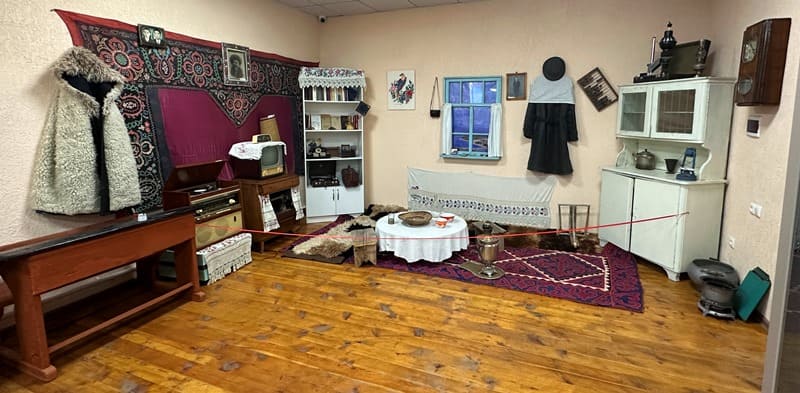
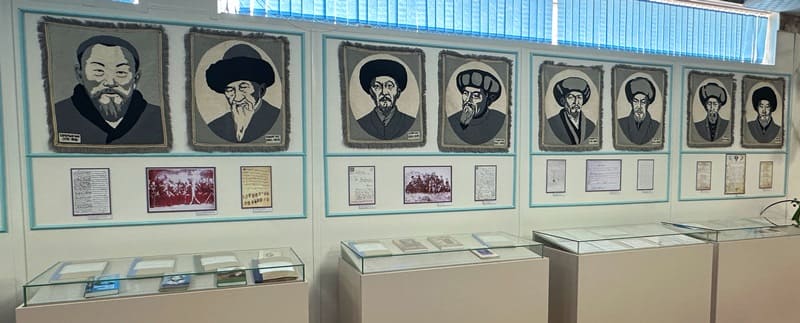

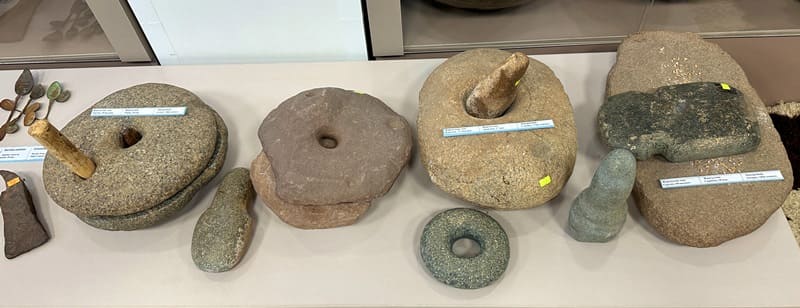
Authority and photos by:
Alexander Petrov.







